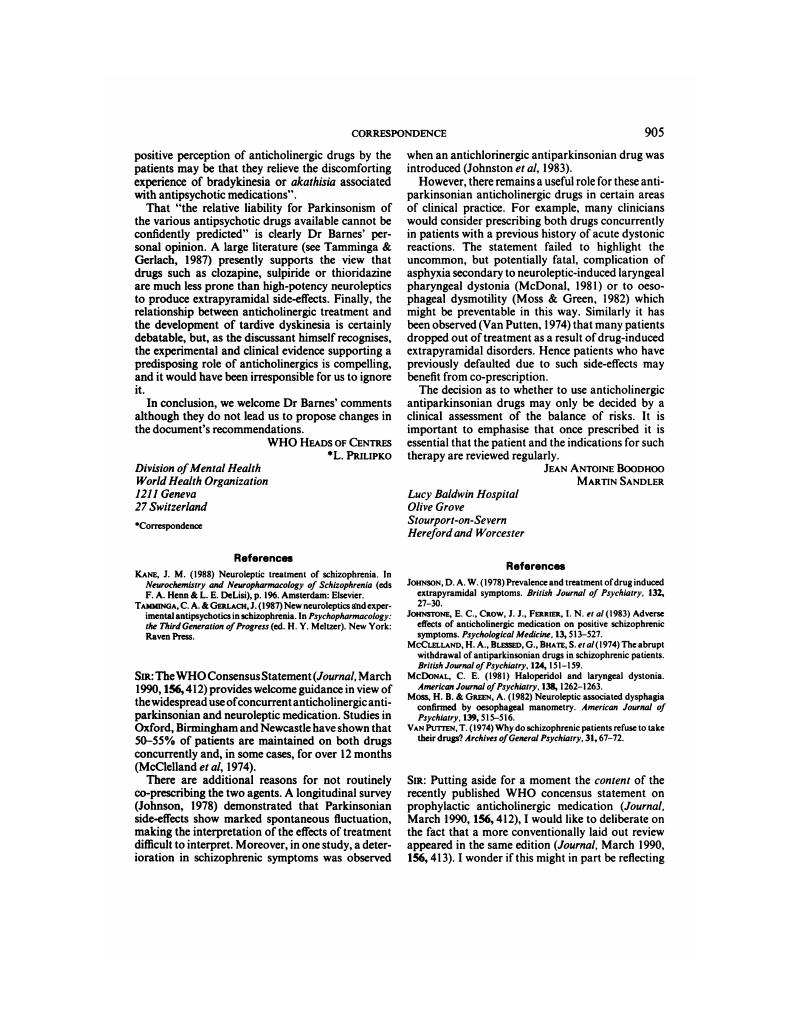No CrossRef data available.
Article contents
Anticholinergics: the consensus statement
Published online by Cambridge University Press: 02 January 2018
Abstract
An abstract is not available for this content so a preview has been provided. As you have access to this content, a full PDF is available via the ‘Save PDF’ action button.

- Type
- Correspondence
- Information
- Copyright
- Copyright © Royal College of Psychiatrists, 1990
References
Johnson, D. A. W. (1978) Prevalence and treatment of drug induced extrapyramidal symptoms. British Journal of Psychiatry, 132, 27–30.CrossRefGoogle Scholar
Johnstone, E. C., Crow, J. J., Ferrier, I. N.
et al (1983) Adverse effects of anticholinergic medication on positive schizophrenic symptoms. Psychological Medicine, 13, 513–527.CrossRefGoogle ScholarPubMed
McClelland, H. A., Blessed, G., Bhate, S.
et al (1974) The abrupt withdrawal of antiparkinsonian drugs in schizophrenic patients. British Journal of Psychiatry, 124, 151–159.CrossRefGoogle ScholarPubMed
McDonal, C. E. (1981) Haloperidol and laryngeal dystonia. American Journal of Psychiatry, 138, 1262–1263.CrossRefGoogle Scholar
Moss, H. B. & Green, A. (1982) Neuroleptic associated dysphagia confirmed by oesophageal manometry. American Journal of Psychiatry, 139, 515–516.Google Scholar
Van Putten, T. (1974) Why do schizophrenic patients refuse to take their drugs?
Archives of General Psychiatry, 31, 67–72.CrossRefGoogle ScholarPubMed



eLetters
No eLetters have been published for this article.